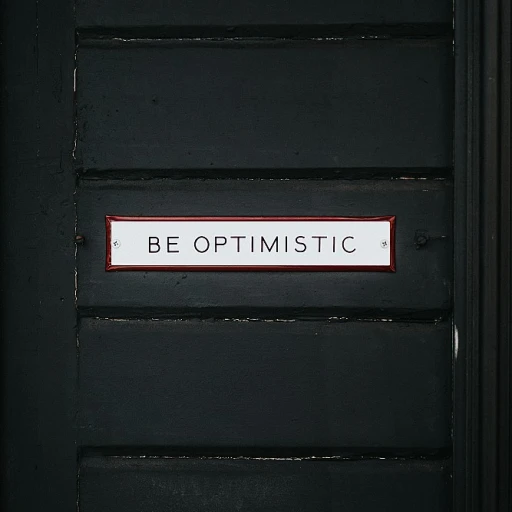
Understanding the Role of CHRO in Modern Organizations
Defining the Mission of the CHRO
In a job interview, understanding the role of a Chief Human Resources Officer (CHRO) within modern organizations is crucial for candidates vying for this important position. A CHRO is no longer just a background figure handling internal personnel matters. Instead, it is a strategic role pivotal in shaping the company culture and driving organizational success. Potential candidates should prepare answers that demonstrate their potential to fulfill these responsibilities effectively.Understanding the Company Vision
During the interview process, it’s important to ask questions that reflect an understanding of where the company intends to go. This involves aligning the HR strategy with the broader company vision. Candidates might want to inquire about:- The company’s long-term strategic goals
- How HR practices are currently supporting those goals
- Where they see the HR department playing a pivotal role in future development
Exploring Collaborative Dynamics
Exploring how a CHRO collaborates with different departments is vital. This includes understanding how the CHRO coordinates with leadership, aligning HR initiatives with financial and operational objectives, and how team working enhances productivity. Questions during the interview might include:- What are the expectations for the CHRO in terms of cross-departmental collaboration?
- Can you share examples of successful teamwork between HR and other company sectors?
- How does the HR team maintain communication and align with company strategies?
Key Questions to Assess HR's Strategic Alignment
Key Considerations for Aligning HR with Business Strategy
During an HR interview, understanding the alignment between the HR department and the company's strategic goals is crucial. Strategic alignment ensures that HR initiatives effectively support the company's objectives, creating a cohesive and supportive work environment. Here are some essential questions to consider:- How does the HR team contribute to the organization's strategic goals?
- What challenges does the HR department face in aligning itself with the company strategy?
- In what ways does HR promote the company culture and values?
- Can you describe a typical day for someone in this position?
- What does success look like for someone working in this role?
Evaluating Talent Management and Development Strategies
Assessing Talent Development and Growth Pathways
During the interview process, it's crucial to ask questions that delve into how the company supports professional development and career growth. Understanding this aspect can provide insight into the company culture and how it fits the role of the CHRO in fostering a nurturing work environment. When the interviewer shares information about these strategies, consider the following points to assess if the organization effectively guides its employees:- What initiatives does the company have in place to promote continuous learning and skills development? This question will help you understand the company's long-term investment in its employees and gauge the importance they place on talent cultivation.
- Can you describe a typical day in this department regarding developmental programs? Asking about a typical day can reveal the practical side of how strategies unfold and provide context on the actual implementation rather than theoretical policies.
- How does the team work together to identify and support high-potential employees? Collaborative efforts demonstrate the importance of teamwork in fostering growth, allowing you to gauge the company's approach to recognizing and nurturing talent effectively.
- What are the biggest challenges the organization faces in aligning its talent management strategies with overall organizational goals? This question aims to uncover potential obstacles and how the organization plans to overcome them to ensure a good fit for a career in such an environment.
Exploring Diversity, Equity, and Inclusion Initiatives
Delving Into Diversity, Equity, and Inclusion Strategies
When evaluating a company's HR strategy during an interview, it’s crucial to assess how the organization approaches diversity, equity, and inclusion (DEI). This not only reflects the company's commitment to fostering a supportive and dynamic culture team, but it can also be a good indicator of its priorities and values. During the interview process, consider asking the following questions to gauge DEI initiatives:- What specific DEI goals has the team prioritized, and how do these align with the company’s overall strategic objectives? This question will help you understand the company’s commitment to promoting an inclusive workplace and observe how systematically they integrate DEI into their long-term plans.
- Can you describe the efforts taken to raise awareness and build understanding within the company about diversity and inclusivity issues? Exploring this can give you insight into how the team fosters understanding and addresses bias among employees.
- How does the company ensure equity in hiring practices and career development opportunities? This question sheds light on the steps put in place to ensure fair treatment and equal opportunities across various levels of the organization.
- Could you share some of the biggest challenges the company faces in its ongoing DEI efforts? Understanding these challenges can help you ascertain the organization's levels of transparency and the reality of its DEI initiatives.
- In what ways does the leadership champion diversity and inclusion, and how are these efforts communicated and supported by the team? This provides insight into leadership’s role in driving DEI efforts and the degree of support received from top management down to the rest of the team.
Assessing HR Technology and Innovation
Evaluating the Role of Technology in HR
In today's rapidly evolving business landscape, the integration of technology within HR processes is not just a trend but a necessity. During an HR interview, it's crucial to assess how a company leverages technology to enhance its HR functions. This not only reflects on the company's adaptability but also its commitment to innovation.
When discussing HR technology, consider asking questions that delve into the specific tools and systems the company uses. For instance, inquire about the HR software that supports their talent management and development strategies. Understanding the technology stack can provide insights into how efficiently the HR team operates and how well it aligns with the company's strategic goals.
Key Questions to Ask
- What HR technology platforms does the company currently use, and how do they support the overall HR strategy?
- How does the company ensure that its HR technology remains up-to-date and relevant?
- Can you share examples of how technology has improved the HR processes or employee experience?
- How does the company measure the success of its HR technology initiatives?
These questions will help you understand the company's approach to integrating technology within its HR processes. It's also beneficial to explore how the company fosters a culture of innovation and continuous improvement. This can be a good indicator of how the company adapts to change and prepares for future challenges.
Assessing Innovation and Adaptability
During the interview process, it's important to evaluate how the company encourages innovation within its HR department. Ask about any recent technological advancements or initiatives that have been implemented. This can provide a glimpse into the company's forward-thinking approach and its readiness to embrace new opportunities.
Additionally, consider asking about the biggest challenges the company faces in implementing new HR technologies. Understanding these challenges can offer insights into the company's resilience and problem-solving capabilities. It also helps you gauge whether the company culture supports experimentation and learning from failures.
By focusing on these aspects during the interview, you can better understand how the company leverages technology to enhance its HR functions and whether it aligns with your career aspirations and values.
Understanding Employee Engagement and Retention Strategies
Fostering a Culture of Engagement
Understanding how a company fosters employee engagement is crucial during an HR interview. Asking questions about the company's culture and how it supports team working can reveal a lot about the role's environment. Consider asking the interviewer about the typical day in the position and how the team collaborates to achieve success. This will help you understand if the company culture aligns with your career goals and if the role is a good fit for you.
Retention Strategies and Their Impact
Retention is a key aspect of any HR strategy. During the interview process, inquire about the company's retention strategies and how they measure success in this area. Good questions might include asking about the biggest challenges the company faces in retaining talent and what initiatives are in place to address these challenges. Understanding these strategies will give you insight into the company's commitment to professional development and employee satisfaction.
Evaluating the Role of Feedback
Feedback is a critical component of employee engagement and retention. During the interview, ask questions about how feedback is given and received within the company. Does the company have a structured process for feedback, or is it more informal? How often do employees have the opportunity to share their thoughts and comments? These questions will help you gauge the company's openness to employee input and its dedication to continuous improvement.
Understanding Professional Development Opportunities
Professional development is essential for career growth and employee satisfaction. During the interview, make sure to ask about the opportunities available for professional development within the company. This could include training programs, mentorship opportunities, or career advancement paths. Understanding these opportunities will help you determine if the company invests in its employees' growth and if it aligns with your career aspirations.













